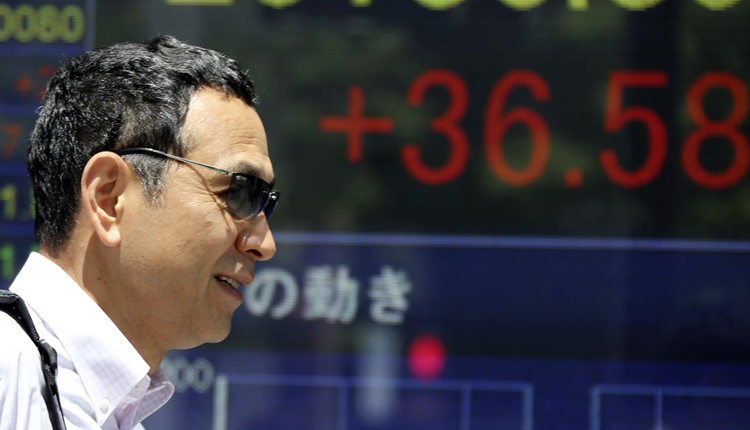Asian markets fell to 14-month lows on Wednesday afternoon on the back of news that China will be making a request to the World Trade Organization to impose sanctions on the U.S.
Japan’s Nikkei 225 was down by 0.33 percent, as South Korea’s Kospi traded lower by 0.28 percent.
In Australia, the ASX 200 recovered from some of its earlier losses but still remained slightly down as the financial sector was lower by 0.45 percent.
In the Greater China region, Hong Kong’s Hang Seng index remained in bear territory, trading 0.4 percent lower. Markets on the mainland also continued the downward trend with the Shanghai composite lower by 0.21, percent while the Shenzhen composite was down 0.147 percent.
Overnight on Wall Street, the Dow Jones Industrial Average ended the trading day around 114 points higher to close at 25,971.06. The Nasdaq Composite was up by 0.61 percent to close at about 7,972.47 while the S&P 500 advanced by approximately 0.37 percent to end the day at 2,887.89.
On Tuesday, it was revealed that China will approach the WTO next week to request for permission to impose sanctions on the U.S. The meeting, which is scheduled to take place on Sept. 21, comes amid an escalation of tensions between the two economic powerhouses on trade issues.
U.S. President Donald Trump announced last Friday that he was prepared to slap more tariffs on $267 billion of Chinese imports into America if he desired.
The U.S. dollar index, which tracks the greenback against a basket of currencies, was at 95.189 as of 12:09 p.m. HK/SIN, as it traded between 95.1 and 95.2 for much of the morning of Asian trade.
Meanwhile, the Japanese yen traded up against the dollar at 111.49, while the Aussie dollar remained lower at $0.7097, as of 12:11 p.m. HK/SIN.
Overnight in the oil markets, prices climbed on the back of the impending U.S. sanctions on Iran in November and a lowering of forecasts to reflect expectations of slower growth in crude production stateside in 2019.
In oil markets, the global benchmark Brent crude futures was up by 0.4 percent at $79.38 per barrel, while U.S. crude futures saw gains of 0.92 percent at $69.89 per barrel as the U.S. east coast braced for a major hurricane.
Hurricane Florence, a Category 4 storm barreling toward North Carolina and South Carolina, is expected to make landfall later this week.
The recent developments in global trade and oil markets have led some investors to urge caution over emerging market currencies, some of which reached 20-year lows recently.
“The perfect storm appears to be building for emerging markets currencies with some pairs sitting at very vulnerable levels having already broken to historic lows,” according to a morning note by Rakuten Securities Australia.
“We’re seeing a strong US economy push (Federal Reserve) rate hike expectations higher at the same time as (its) international policy puts pressure on global trade,” it said. “Once you throw a rising Oil price into the equation when many of these economies are importers, then the stage is set for some potentially nasty moves.”
Source: CNBC


